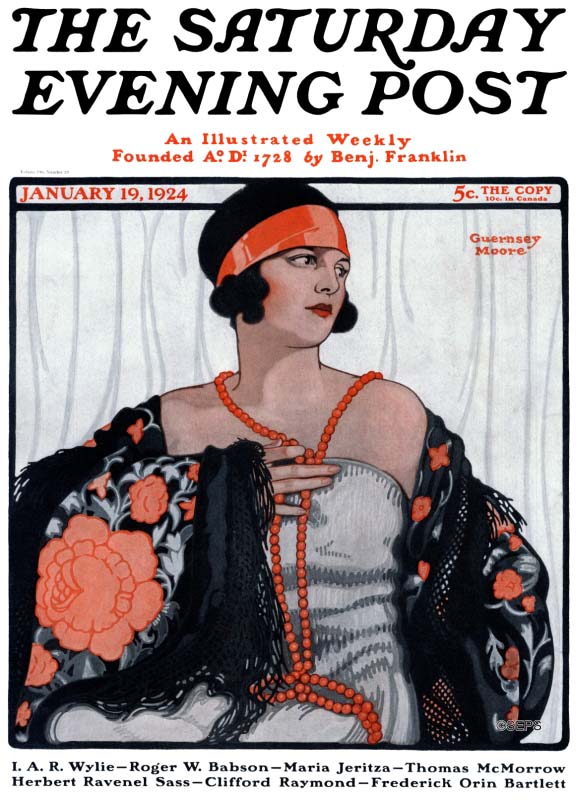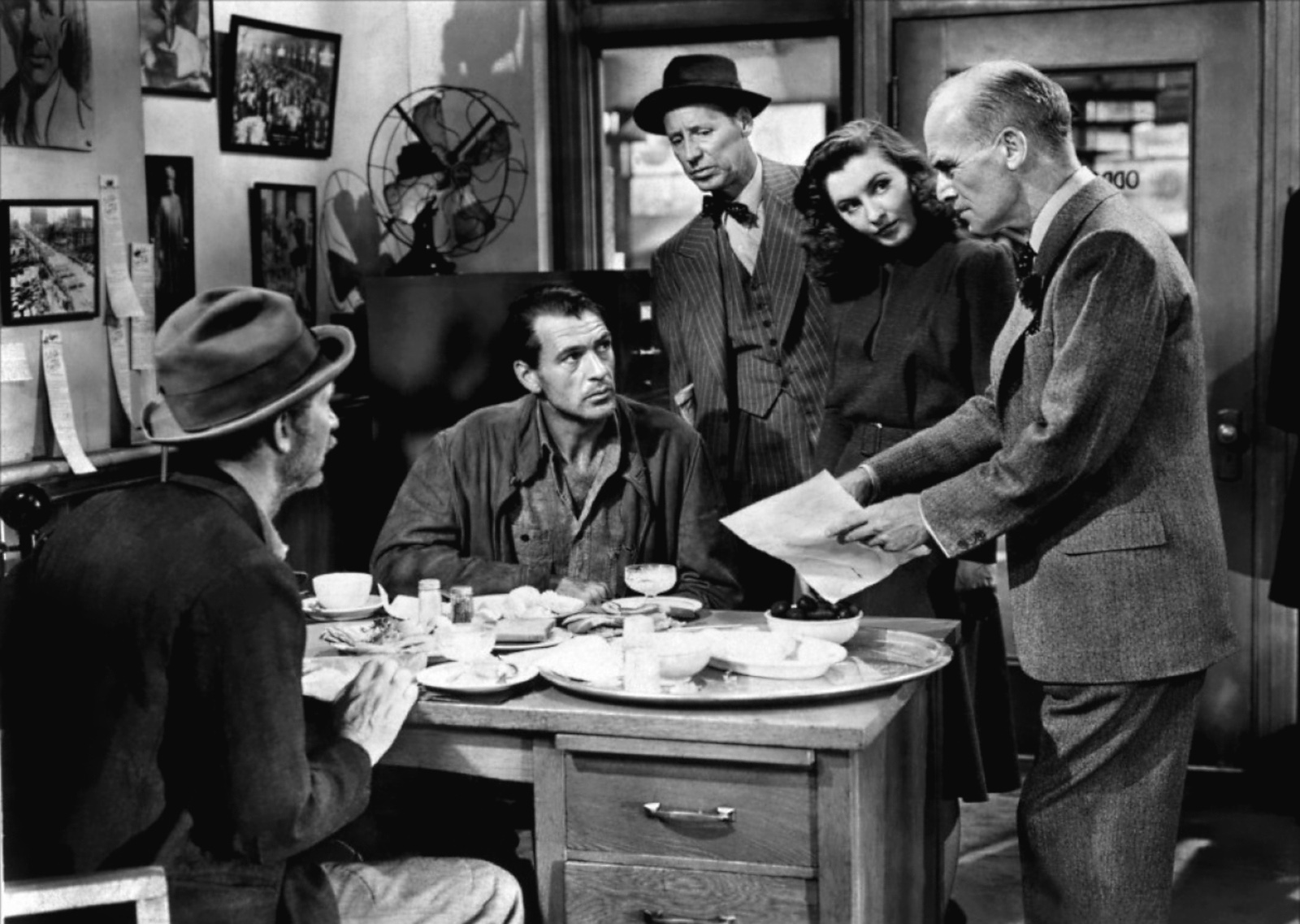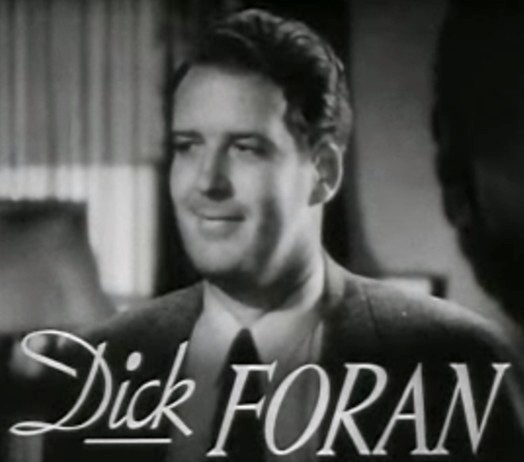|
Earthworm Tractors
''Earthworm Tractors'' is a 1936 American film directed by Ray Enright and starring Joe E. Brown and June Travis. The film is also known as ''A Natural Born Salesman'' in the United Kingdom. The film is based on characters created by William Hazlett Upson in a series of stories that appeared in ''The Saturday Evening Post.'' The series featured Alexander Botts, an eternally optimistic self-proclaimed "natural-born salesman", and the Earthworm Tractor Company, and was inspired in part by Upson's actual work experience with the Caterpillar Tractor Company. Plot summary In this slapstick romantic comedy, the bumbling, but perpetually optimistic "natural-born salesman" Alexander Botts is egged on by his sweetheart Sally to do great things, so he writes a letter to the Earthworm Tractor Company, and is hired as a salesman despite the fact that he knows nothing about tractors. He gets fired more than once for all the destruction he causes, but is rehired by getting orders. After S ... [...More Info...] [...Related Items...] OR: [Wikipedia] [Google] [Baidu] |
Film Still
A film still (sometimes called a publicity still or a production still) is a photograph, taken on or off the set of a movie or television program during production. These photographs are also taken in formal studio settings and venues of opportunity such as film stars' homes, film debut events, and commercial settings. The photos were taken by studio photographers for promotional purposes. Such stills consisted of posed portraits, used for public display or free fan handouts, which are sometimes autographed. They can also consist of posed or candid images taken on the set during production, and may include stars, crew members or directors at work. The main purpose of such publicity stills is to help studios advertise and promote their new films and stars. Studios therefore send those photos along with press kits and free passes to as many movie-related publications as possible so as to gain free publicity. Such photos were then used by newspapers and magazines, for example, to w ... [...More Info...] [...Related Items...] OR: [Wikipedia] [Google] [Baidu] |
The Saturday Evening Post
''The Saturday Evening Post'' is an American magazine, currently published six times a year. It was issued weekly under this title from 1897 until 1963, then every two weeks until 1969. From the 1920s to the 1960s, it was one of the most widely circulated and influential magazines within the American middle class, with fiction, non-fiction, cartoons and features that reached two million homes every week. The magazine declined in readership through the 1960s, and in 1969 ''The Saturday Evening Post'' folded for two years before being revived as a quarterly publication with an emphasis on medical articles in 1971. As of the late 2000s, ''The Saturday Evening Post'' is published six times a year by the Saturday Evening Post Society, which purchased the magazine in 1982. The magazine was redesigned in 2013. History Rise ''The Saturday Evening Post'' was first published in 1821 in the same printing shop at 53 Market Street in Philadelphia where the Benjamin Franklin-founded ''Pennsyl ... [...More Info...] [...Related Items...] OR: [Wikipedia] [Google] [Baidu] |
Irving Bacon
Irving Bacon (born Irving Von Peters; September 6, 1893 – February 5, 1965) was an American character actor who appeared in almost 500 films. Early years Bacon was the son of entertainers Millar Bacon and Myrtle Vane. He was born in St. Joseph, Missouri, and grew up in San Diego, California. Career Bacon played on the stage for a number of years before getting into films in 1912 in Mack Sennett productions. The actor returned to the Sennett studio in 1924, and appeared frequently in Sennett's silent and sound comedies as a supporting actor. By 1933 Bacon was so well established as a utility player that he was pressed into service to replace Andy Clyde -- wearing Clyde's "old man" costume and makeup -- in a Sennett comedy. Irving Bacon was sometimes cast in films directed by Lloyd Bacon (incorrectly named as his brother in several sources) such as ''The Amazing Dr. Clitterhouse'' (1938). He often played comical "average guys" in scores of feature films; in 1939 alone he app ... [...More Info...] [...Related Items...] OR: [Wikipedia] [Google] [Baidu] |
William B
William is a male given name of Germanic origin.Hanks, Hardcastle and Hodges, ''Oxford Dictionary of First Names'', Oxford University Press, 2nd edition, , p. 276. It became very popular in the English language after the Norman conquest of England in 1066,All Things William"Meaning & Origin of the Name"/ref> and remained so throughout the Middle Ages and into the modern era. It is sometimes abbreviated "Wm." Shortened familiar versions in English include Will, Wills, Willy, Willie, Bill, and Billy. A common Irish form is Liam. Scottish diminutives include Wull, Willie or Wullie (as in Oor Wullie or the play ''Douglas''). Female forms are Willa, Willemina, Wilma and Wilhelmina. Etymology William is related to the given name ''Wilhelm'' (cf. Proto-Germanic ᚹᛁᛚᛃᚨᚺᛖᛚᛗᚨᛉ, ''*Wiljahelmaz'' > German ''Wilhelm'' and Old Norse ᚢᛁᛚᛋᛅᚼᛅᛚᛘᛅᛋ, ''Vilhjálmr''). By regular sound changes, the native, inherited English form of the name should b ... [...More Info...] [...Related Items...] OR: [Wikipedia] [Google] [Baidu] |
Charles C
Charles is a masculine given name predominantly found in English language, English and French language, French speaking countries. It is from the French form ''Charles'' of the Proto-Germanic, Proto-Germanic name (in runic alphabet) or ''*karilaz'' (in Latin alphabet), whose meaning was "free man". The Old English descendant of this word was ''Churl, Ċearl'' or ''Ċeorl'', as the name of King Cearl of Mercia, that disappeared after the Norman conquest of England. The name was notably borne by Charlemagne (Charles the Great), and was at the time Latinisation of names, Latinized as ''Karolus'' (as in ''Vita Karoli Magni''), later also as ''Carolus (other), Carolus''. Some Germanic languages, for example Dutch language, Dutch and German language, German, have retained the word in two separate senses. In the particular case of Dutch, ''Karel'' refers to the given name, whereas the noun ''kerel'' means "a bloke, fellow, man". Etymology The name's etymology is a Common ... [...More Info...] [...Related Items...] OR: [Wikipedia] [Google] [Baidu] |
Joseph Crehan
Joseph A. Creaghan (July 15, 1883 – April 15, 1966) was an American film actor. He appeared in more than 300 films between 1916 and 1965, and notably played Ulysses S. Grant nine times between 1939 and 1958, most memorably in ''Union Pacific'' and ''They Died with Their Boots On''. Early life Born in Baltimore, Maryland. he was the son of Mr. and Mrs. Mathew Crehan. He attended Calvert Hall College and Kent College of Law but left the latter because of his stronger interest in drama. Early in his career, Crehan worked in light comedy. He was in his late 30s when he began doing character roles. Career Crehan's Broadway credits include ''Twentieth Century'' (1932), ''Lilly Turner'' (1932), ''Angels Don't Kiss'' (1932), ''Those We Love'' (1930), ''Sweet Land of Liberty'' (1929), ''Merry Andrew'' (1929), ''Ringside'' (1928), and ''Yosemite'' (1914). Crehan often played alongside Charles C. Wilson with whom he is sometimes confused. In 1961, credited as "Joe Crehan", he a ... [...More Info...] [...Related Items...] OR: [Wikipedia] [Google] [Baidu] |
Olin Howland
Olin Ross Howland (February 10, 1886 – September 20, 1959) was an American film and theatre actor. Life and career Howland was born in Denver, Colorado, to Joby A. Howland, one of the youngest enlisted participants in the Civil War, and Mary C. Bunting. His sister was stage actress Jobyna Howland. From 1909 to 1927, Howland appeared on Broadway in musicals, occasionally performing in silent films. The musicals include ''Leave It to Jane'' (1917), ''Two Little Girls in Blue'' (1921) and ''Wildflower'' (1923). He was in the film ''Janice Meredith'' (1924) with Marion Davies. With the advent of sound films, his theatre background proved an asset, and he concentrated mostly on films thereafter, appearing in nearly two hundred movies between 1918 and 1958. Howland often played eccentric and rural roles in Hollywood. His parts were often small and uncredited, and he never got a leading role. He was a personal favorite of David O. Selznick, who cast him in his movies '' Not ... [...More Info...] [...Related Items...] OR: [Wikipedia] [Google] [Baidu] |
Gene Lockhart
Edwin Eugene Lockhart (July 18, 1891 – March 31, 1957)"Gene Lockhart" ''The Canadian Encyclopedia''. was a Canadian-American , playwright, singer and lyricist. He became an American citizen in 1939. Early life Born in , he made his professional debut at the age of six when he appeared with the Kilties Band of Canada. He later appeared in sketches with Beatrice Lillie. Lockhart wa ...[...More Info...] [...Related Items...] OR: [Wikipedia] [Google] [Baidu] |
Carol Hughes (actress)
Carol Hughes (born Catherine Mabel Hukill, January 17, 1910 – August 8, 1995) was an American actress. She is best remembered for her leading roles opposite Gene Autry and Roy Rogers, and for her role as Dale Arden in ''Flash Gordon Conquers the Universe'' (1940). Biography Hughes was born in Chicago, Illinois, to Charles, an upholsterer, and Mable Hukill (née Stift). Both of her parents were born in Chicago; her mother's grandparents were from Germany. She was raised in a rented house at 2122 Pearl Court in Chicago along with a cousin, Pearl Hukill. As a teenager, she was drawn to acting and participated in school plays. At the age of 14, she began acting and dancing in short musical comedies with an Oshkosh stock company. The following year, she appeared as Katie Conway in the Conway Sisters team, having learned to sing and play piano. In the late 1920s, she teamed with Frank Faylen to form the comedy dancing and singing team of Faylen and Hughes in which she played the " ... [...More Info...] [...Related Items...] OR: [Wikipedia] [Google] [Baidu] |
Dick Foran
John Nicholas "Dick" Foran (June 18, 1910 – August 10, 1979) was an American actor, known for his performances in Western musicals and for playing supporting roles in dramatic pictures. Early years Foran was born in Flemington, New Jersey, the first of five sons to Arthur F. Foran and Elizabeth Foran. His father was a Republican member of the New Jersey Senate, as was Dick Foran's younger brother, Walter E. Foran. He attended Mercersburg Academy, where he competed on the track team under Scots-American athletics coach Jimmy Curran. After graduation he attended the Hun School, a college preparatory school in nearby Princeton, and then enrolled at Princeton University, pursuing a degree in geology. He played on the football team while taking courses in the arts, where he developed an interest in the theater. Foran studied music at the Leibling Studio in New York before singing on radio. As Nick Foran, he went on to become a lead singer with a band and later formed h ... [...More Info...] [...Related Items...] OR: [Wikipedia] [Google] [Baidu] |
Guy Kibbee
Guy Bridges Kibbee (March 6, 1882 – May 24, 1956) was an American stage and film actor. Early years Kibbee was born in El Paso, Texas. His father was editor of the '' El Paso Herald-Post'' newspaper, and Kibbee learned how to set type at age 7. At the age of 14, he ran away to join a traveling show. His younger brother was actor Milton Kibbee. Career Kibbee began his entertainment career on Mississippi riverboats. He became an actor in traveling stock companies. He began to lose his hair at 19. In his early days on stage, he was a romantic leading man. In 1930, he made his debut on Broadway in the play ''Torch Song'', which won acclaim in New York and attracted the interest of Hollywood. Shortly afterwards, Paramount Pictures signed Kibbee, and he moved to California. He later became part of Warner Bros.'s stock company, contract actors who cycled through different productions in supporting roles. Kibbee's specialty was daft and jovial characters; he is perhaps best rememb ... [...More Info...] [...Related Items...] OR: [Wikipedia] [Google] [Baidu] |
Harrison's Reports And Film Reviews
''Harrison's Reports and Film Reviews'' is the 15-volume reprint of the complete run of the weekly magazine ''Harrison's Reports'' from its founding in 1919 to its demise in 1962. Volumes 1 through 14 are facsimile reprints of the more than 2,000 weekly issues. The reprints were edited by D. Richard Baer and published 1992-1995 by Hollywood Film Archive. Film review index Volume 15 is an alphabetical index of the films reviews, approximately 17,000 in all. Films are also indexed by alternate titles and original foreign language titles. Over 99% of the reprints were reproduced from original issues, the rest from photocopies or microfilm blowups. The index volume includes a two-page narrative titled “A Brief History of these Reprints” about how all the issues were gathered. Volumes and years covered Volume summaries At the front of each volume is a one-page summary of the more important issues discussed in the editorials of that period. Original indexes reprinted ''Harrison's ... [...More Info...] [...Related Items...] OR: [Wikipedia] [Google] [Baidu] |


_-_Joseph_Crehan.jpg)

